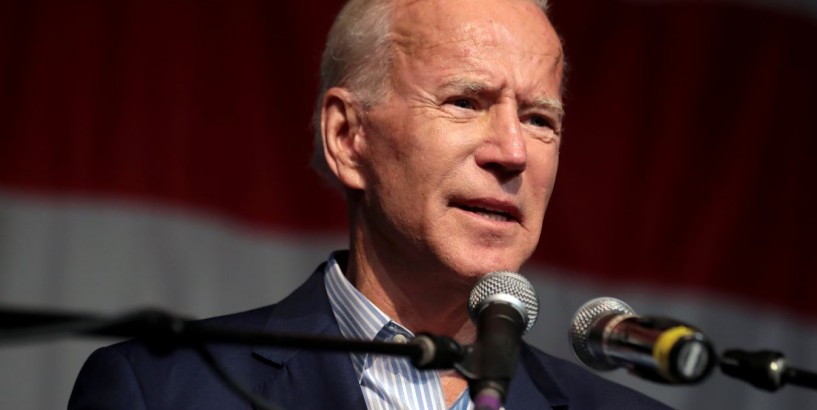With the dramatic winnowing of the Democratic presidential field, the 14 nominating contests held on Tuesday largely came down to a single question: Could former Vice President Joe Biden amass enough delegates to slow U.S. Senator Bernie Sanders' path to the nomination?
As polls closed in the eastern United States, the emerging answer appeared to be "Yes." Polls showed Biden, whose candidacy was buoyed this week by a wave of high-profile endorsements, outperforming expectations.
The Super Tuesday contests offer the biggest one-day haul of the 1,991 delegates needed to win the party's nomination at its national convention in July, with about 1,357 delegates, or nearly one-third of the total number, up for grabs.
Here are some initial takeaways from Super Tuesday voting.
Joe Biden Wikimedia Commons A BIDEN COALITION
It appeared clear early on that Biden benefited from the last-minute endorsements from former presidential contenders Pete Buttigieg and Amy Klobuchar. The Democratic establishment increasingly is coalescing around him as an alternative to Sanders, a democratic socialist.
North Carolina and Virginia were called for Biden immediately when polls closed, with exit polls suggesting Biden was headed for decisive wins.
Those polls suggested Biden was building the broad coalition needed for a presidential nominee. Beyond Biden's longstanding support among African-American voters, he looked to be beating Sanders in both states among white voters who did not graduate from college – a traditional Sanders stronghold.
Perhaps most important for the Democratic race, Biden was easily outperforming Sanders with women voters. More than half of the women in the U.S. now identify with the Democratic Party, according to recent studies.
THE DELEGATE MATH
For Biden, the goal on Tuesday was to draw as near to Sanders in terms of overall pledged delegates to the Democratic national convention as possible. Going into Super Tuesday, Sanders held a slight lead over Biden because of his success in earlier primaries, or nominating contests.
It remained unlikely that Biden would be able to pull even with Sanders. Still, a strong showing might slow Sanders' momentum enough to allow Biden to catch him in upcoming primaries.
Virginia and North Carolina offered 209 delegates between them, with the delegates awarded proportionally based on the candidates' share of the electorate.
Both Sanders and Biden will finish Tuesday with fewer than 1,000 each, still short of the 1,991 delegates needed to secure the nomination.
Michael Bloomberg Wikimedia commons
A BITTER PILL FOR BLOOMBERG
The result in Virginia is a particularly bitter disappointment for former New York mayor and media mogul Mike Bloomberg, who made winning the state a top priority.
It was the first state where he held a campaign event after announcing his candidacy, and recent polls showed him competitive in the state.
Final vote totals had Bloomberg finishing below the 15% threshold needed to win delegates, shutting him out in that state. He appeared to be in slightly better shape in North Carolina.
Even so, such a disastrous showing in what appeared to be winnable states will likely intensify calls for the billionaire, who spent more than $200 million of his own fortune on ads for Super Tuesday, to exit the Democratic race in favor of Biden.
BEATING TRUMP
The exit polls appeared to bolster Biden's claim that he is best positioned to defeat President Donald Trump in the general election in November.
Polls from North Carolina and Virginia gave him a clear advantage over Sanders among voters who said they would rather have a nominee who can beat Trump than who agrees with them on major issues. In Virginia, for example, 64% of those who prioritized beating Trump backed Biden compared to just 16% for Sanders.
Such results appeared to suggest a growing belief within the party that nominating Sanders would hand Trump a second term.









